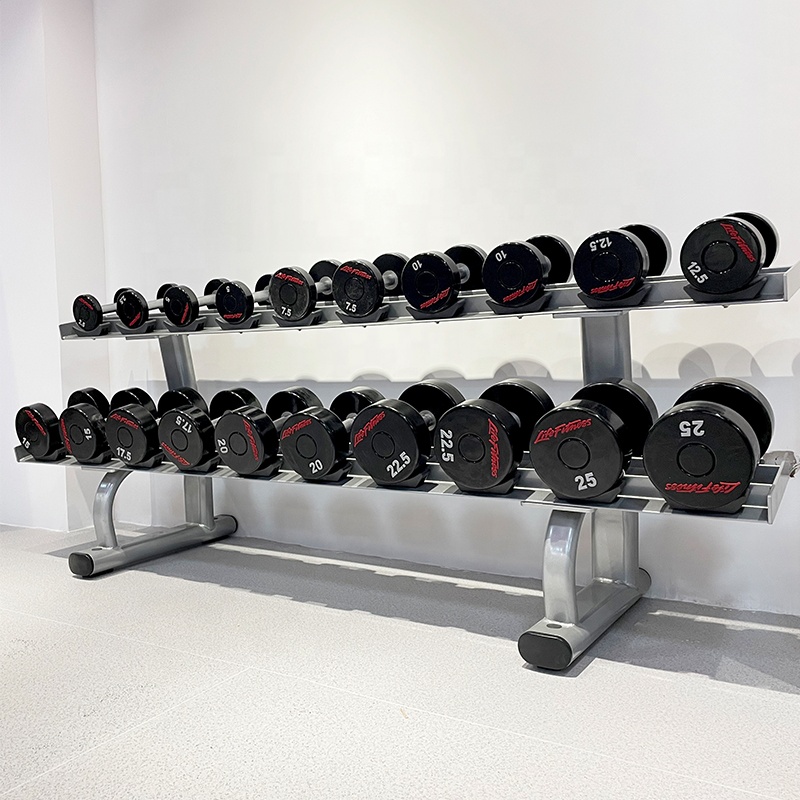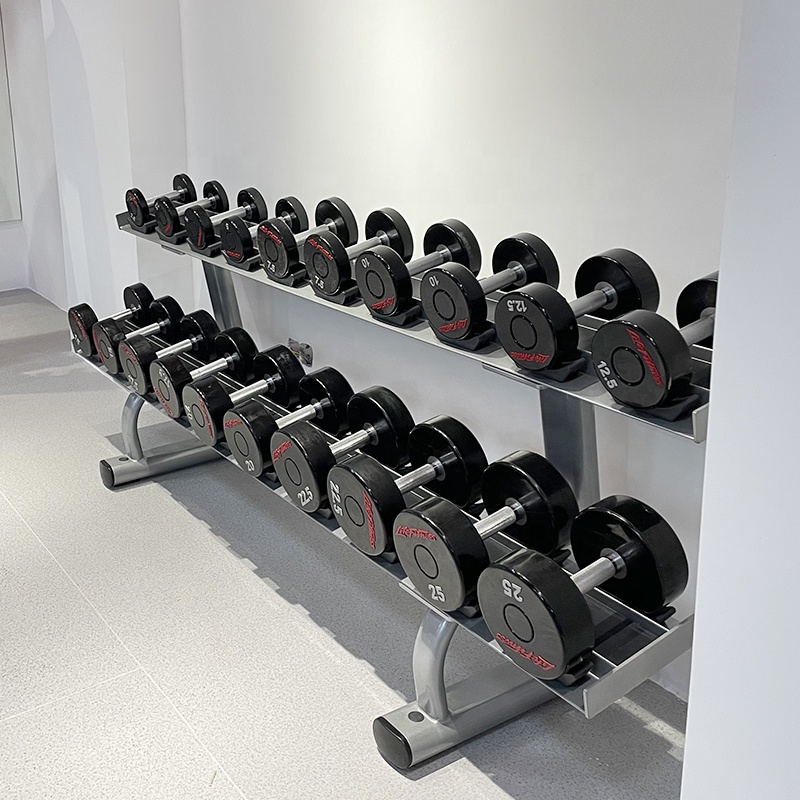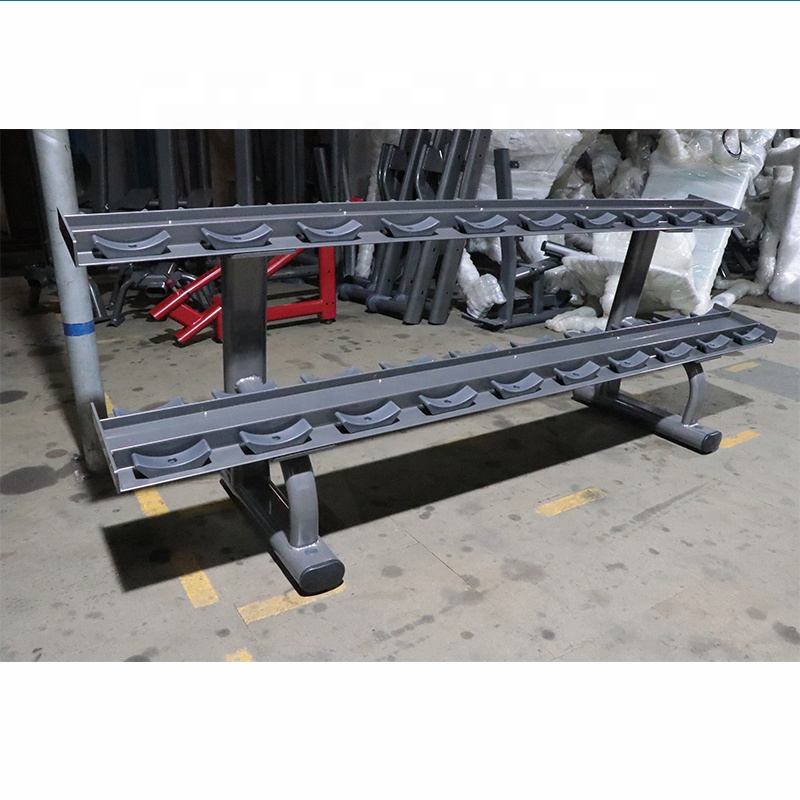The cost of dumbbells can vary widely depending on several factors, including their quality, material, design, and brand. Here's a breakdown of why they might be more expensive than you'd expect:
1. **Quality and Material**: High-quality dumbbells are often made from durable materials such as cast iron, steel, or rubber-coated metal. These materials are more expensive to produce, especially if they're sourced from high-grade materials. Additionally, some premium brands use ergonomic designs that require specialized manufacturing processes.
2. **Brand Name and Marketing**: Many popular fitness brands invest heavily in marketing and have built strong reputations for producing reliable, high-quality products. This often comes at a premium price tag. The brand name itself can contribute to the perceived value and thus the price of the product.
3. **Design and Features**: Some dumbbells come with additional features like adjustable weights, easy-to-grip handles, or special coatings that enhance comfort and safety during workouts. These added features can increase production costs.
4. **Supply Chain and Distribution**: The cost of transporting goods, especially internationally, can add to the overall cost of the product. Additionally, the cost of maintaining a retail presence, whether online or in physical stores, contributes to the final price.
5. **Limited Supply and Demand**: If a particular type of dumbbell is in high demand but the supply is limited due to production constraints or exclusivity agreements, prices may rise.
6. **Research and Development**: Companies spend considerable resources researching and developing new materials, designs, and manufacturing processes. These costs are often passed on to the consumer.
7. **Perceived Value**: Consumers often pay a premium for products that are associated with higher performance, better durability, or simply because they are perceived as "better" by virtue of being more expensive.
8. **Ergonomics and Safety**: Dumbbells designed with ergonomics in mind can provide a safer workout experience, reducing the risk of injury. This can justify a higher price point for users who prioritize safety and comfort.
In summary, the cost of dumbbells reflects a combination of factors related to quality, brand reputation, design, and market dynamics. While it's important to consider value for money, sometimes investing in well-made equipment can lead to better results and a safer, more enjoyable workout experience.
Are dumbbells enough to bulk?
Yes, dumbbells can be more than enough for building muscle mass, also known as "bulking." They offer a lot of versatility and can be used for a wide range of exercises targeting different muscle groups.
To effectively use dumbbells for bulking, it's important to:
1. **Include Compound Exercises**: Focus on exercises that involve multiple muscle groups, such as squats, deadlifts, bench presses, and shoulder presses. These compound movements are highly effective for building strength and muscle mass.
2. **Progressive Overload**: Gradually increase the weight you lift over time. This helps stimulate further muscle growth and prevents your muscles from adapting to the same weight too quickly.
3. **Consistent Training**: Aim for at least 4-6 days of resistance training per week, with adequate rest in between sessions to allow for muscle recovery.
4. **Protein Intake**: Ensure you consume enough protein to support muscle repair and growth. Aim for about 1 gram of protein per pound of body weight daily.
5. **Caloric Intake**: Consume more calories than your body burns to create a caloric surplus, which is necessary for muscle growth.
6. **Variety of Exercises**: Include a variety of exercises to target all major muscle groups. This helps prevent boredom and plateaus in muscle growth.
7. **Form and Technique**: Always prioritize proper form and technique to avoid injuries and maximize muscle engagement.
Remember, consistency, nutrition, and rest are crucial components for successful muscle building, regardless of the type of equipment used. Dumbbells are versatile and can be used for a wide range of exercises that challenge various muscle groups, making them a great tool for bulking.
Are dumbbells healthy?
Yes, using dumbbells can be very healthy for you. Dumbbells are an excellent tool for strength training and building muscle mass. They work by putting stress on your muscles, which then adapts to that stress and grows stronger. This can help improve your overall physical health and fitness.
Additionally, dumbbell exercises typically engage multiple muscle groups at once, which can enhance your core strength, balance, and coordination. They're also versatile; you can perform a wide variety of exercises with them, from bicep curls and tricep extensions to squats and lunges.
However, as with any form of exercise, it's important to use proper technique and start with weights that are appropriate for your fitness level. Overexertion or improper form can lead to injury. It's always a good idea to consult with a fitness professional before beginning a new exercise routine, especially if you're just starting out.
Are dumbbells safer than barbells?
The safety of using dumbbells versus barbells largely depends on the specific exercise, the individual's experience and form, and the context in which they are being used.
Barbells are generally considered more versatile and can support heavier weights due to their design, which allows for more efficient distribution of weight. This makes them suitable for exercises like squats, deadlifts, bench presses, and military presses that require substantial weight and stability. However, if proper technique is not maintained, barbells can pose a higher risk of injury due to the complexity of movements involved.
Dumbbells, on the other hand, are easier to handle and adjust to different body positions, making them ideal for exercises that require greater mobility or when working with lighter weights. They can be safer for beginners as they are easier to control and less likely to cause strain or injury. Dumbbells also facilitate better balance and can help target specific muscle groups more effectively due to their ability to be manipulated into various angles.
In summary, both dumbbells and barbells have their own advantages and potential risks. The choice between them should be based on the individual's fitness level, the specific exercise, and personal comfort and safety considerations. It's always recommended to learn proper techniques from a certified trainer and to use equipment safely to minimize the risk of injury.
Are dumbbells better than gym?
The question of whether dumbbells are better than a gym depends on your specific needs, goals, and circumstances. Here are some points to consider:
1. **Accessibility**: Dumbbells can be a more accessible option if you live in an apartment or don't have access to a gym. They can be used at home, in a hotel room, or outdoors. A set of dumbbells is also less expensive than a full gym membership.
2. **Portability**: Dumbbells are relatively easy to transport compared to large Gym Equipment. This makes them ideal for those who travel frequently or want to exercise while away from home.
3. **Versatility**: While a well-equipped gym offers a wide variety of machines and free weights (barbells, plates, etc.), dumbbells alone can provide a comprehensive workout routine. You can perform many exercises with just a pair of dumbbells, including bicep curls, shoulder presses, squats, lunges, and more.
4. **Customization**: With dumbbells, you can adjust the weight according to your fitness level and the intensity of the exercise. This allows for progressive overload, which is key to building strength and muscle.
5. **Space requirements**: Dumbbells require less space than most gym equipment. However, they might still take up some room depending on the number and size of the weights you own.
6. **Cost**: The initial cost of purchasing a set of dumbbells can vary widely depending on the quality and quantity of weights you choose. A basic set can be significantly cheaper than a year's worth of gym membership fees.
7. **Personal preference**: Some people prefer the guidance and variety of exercises provided by a gym with professional trainers and a wide range of equipment. Others enjoy the simplicity and flexibility of working out with just dumbbells.
In summary, dumbbells can be a highly effective tool for fitness, especially when combined with bodyweight exercises and proper form. However, a gym offers a broader spectrum of equipment, more variety in workouts, and access to professional guidance, which might be beneficial for advanced training or those seeking a more comprehensive workout experience. Ultimately, the choice between the two depends on your personal preferences, fitness goals, and available resources.






